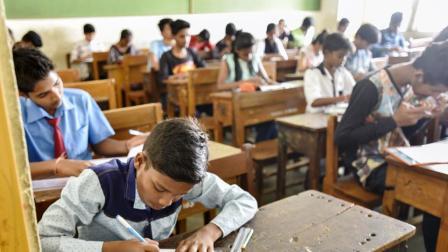Delhi University(DU) decision to implement the National Education Policy (NEP) from the next academic year has triggered some confusion among students. This has also led the varsity teachers’ body to call a strike. State governments of Karnataka and Madhya Pradesh have also implemented the new education policy and seek to implement NEP-2020 in all government and private universities within four years.
What is NEP?
The NEP is a four-year undergraduate programme and it gives multiple entries and exit options for students. This education policy is designed to make courses multi disciplinary, integration of vocational courses and soft skills.
It is aimed to allow students to widen their boundaries with knowledge not only of their own discipline but other disciplines as well, contributing to their overall development.
Union Education Minister said, “NEP will be the key to realising aspirations and empowering the students and youth.”
What it means
To understand it in more clearly terms with an example – A student from B. Tech would no longer be obligated to study only engineering but would also have the opportunity to venture into studies with components from arts and humanities, which will eventually serve the purpose to enlarge the students critical thinking, and analysis and understand of different fields.
At the same time, Arts and Humanities students will also have freedom to learn aspects of Science.
IIT- Bombay’s LSAE course is one such example
An existing example of such policy can be seen in LSAE ( Liberal Science and Engineering ) program. This program was introduced by IIT- Bombay this year and gives students the option to graduate with a Bachelor of Science (BS) degree in five fields or “concentrations” — engineering sciences, natural sciences, social sciences, art and design.
Opportunity to Go beyond your Stream
The NEP is a road to achieve this multi disciplinary education through the 4 year undergraduate program.
At present, students from most courses except B. Tech and MBBS have degree courses of 3 years. With the implementation of NEP these will transform into 4 year courses, including aspects of different disciplines , but what was taught in the 3 year curriculum would not be reduced.
Not compulsory, allows several entries and exits
This multidisciplinarity is not being made compulsory whereas it will be a preferred option. Definitely, students will be studying an extra year, but the option to leave before that will also be available, with a degree completion certificate.
If a student completes the whole 4 year programme then that would lead to a bachelor’s degree with research, only if the student completes a rigorous research project. This research needs to be done in student’s major area of study.
The students will also have the opportunity to leave and continue their respective courses.
A student leaving after completion of the first year will get a certificate. After the second year, the student will be eligible for a Diploma. After the third year, a simple Bachelors Degree will be awarded.
Starting next year, DU students can opt for either a three-year honours programme, or a four-year honours programme, or a four-year honours programme with research.
Teaching in Regional languages
This New Education Policy also favours the promotion of regional languages, as it is aimed to teach several courses in Hindi, Bengali, Marathi, Tamil and Telugu.
The institutions will adopt the local tongue as the medium of instruction which will also increase the number of students as those who are not very fluent in English can also get the most out of such courses in their own language.
NTA ( National Testing Agency )
The NEP 2020, also looks forward to enact one entrance exam policy for all universities. This will lessen the burden on students and universities, as earlier the entrance exam was conducted separately by each university. It will be up to the university whether it will participate under the branch of NTA and will consider the examconducted by NTA for their university or not. Universities like DU, JNU and various other central universities have said to implement this from next year entrance test.
The ABC
ABC, or in more simpler terms is Academic Bank of Credit. The University Grants Commission (UGC) had introduced a choice-based credit system (CBCS) before the NEP. Under this system, you earn credits for each course you take during your degree studies. The Academic Bank of Credit (ABC) proposed by the NEP is where higher education institutions will digitally deposit credits earned by students for courses they studied.
This ABC will affect the learning experience as the ABC is expected to aid the multiple entry and exit system for students as well as multidisciplinary for students.
[Prepared by Nishant Mishra]


